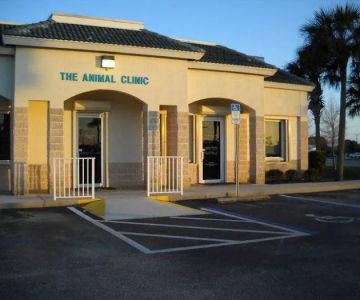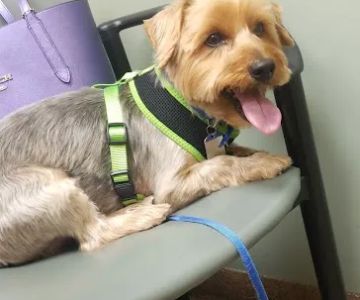Can I Trust My Veterinarian? Key Questions You Should Ask
When I first got my pet, I was overwhelmed with the responsibility of making sure he received the best care possible. One of my main concerns was whether or not I could trust my veterinarian. After all, choosing the right veterinarian for your pet is crucial. I wanted someone who not only had the knowledge and experience but also had my pet’s best interest at heart. This article is dedicated to helping pet owners like me navigate the process of selecting a trustworthy vet and understanding the factors that can affect the trustworthiness of your veterinarian.
1. Why Trust Matters When Choosing a Veterinarian
When it comes to pet care, trust is everything. Our pets rely on us to make decisions that affect their health and well-being, and a key part of this decision-making process is finding a veterinarian you trust. But how do you know if you can trust your vet? For me, trust was built over time, but there were key things I looked for that helped me determine if my vet was trustworthy.

3300 N Tamiami Trl STE 103A, Port Charlotte, FL 33952, USA
See Details1.1 Experience and Qualifications
One of the first things I researched was the veterinarian’s qualifications and experience. I wanted to make sure they had the necessary training and expertise to care for my pet, especially if it was a more specialized issue. A trustworthy vet should be well-trained, and you should feel comfortable asking them about their background. Most vets will be happy to share their education, certifications, and any additional training they’ve received in specific areas of pet care.
1.2 Reviews and Recommendations
Another crucial factor in building trust is the reviews and recommendations from other pet owners. I found that reading online reviews, as well as asking fellow pet owners for their recommendations, helped me get a better sense of whether a vet was truly trustworthy. When other pet owners have positive experiences, it's usually a good sign that the veterinarian is reliable and skilled.
2. What Questions to Ask to Build Trust
If you’re questioning whether you can trust your veterinarian, there are several questions you can ask to help ease your concerns. I remember asking my vet a lot of questions when I first met them. These questions allowed me to feel more confident in my decision and helped build the foundation for trust. Here are some of the questions I recommend asking your vet:
2.1 “What is Your Approach to Pet Care?”
One of the first things I asked my vet was about their approach to pet care. I wanted to know if they prioritized preventive care, such as regular checkups and vaccinations, or if they focused more on reactive care. A good veterinarian should emphasize preventive care and work with you to maintain your pet’s health over the long term.
2.2 “How Do You Handle Emergencies?”
Another important question is how your veterinarian handles emergencies. I wanted to make sure my vet was accessible during emergencies or had a protocol in place to refer to a nearby emergency vet clinic. A trustworthy vet should be transparent about how they handle emergencies and should make you feel confident that your pet will be taken care of in a crisis.
2.3 “Can You Provide References or Client Testimonials?”
Just like when hiring any professional, I found that asking for references or client testimonials helped me feel more at ease. Many reputable veterinarians will be happy to provide you with references or direct you to clients who can share their experiences. This added layer of validation helped me confirm that my vet was trustworthy and had a good reputation in the community.
3. How to Recognize Warning Signs of a Distrusting Veterinarian
While there are plenty of great vets out there, I also learned that there are warning signs to watch out for that may indicate a lack of trustworthiness. The more I observed my veterinarian’s practices, the more I learned to spot certain red flags. These warning signs can help you determine if it’s time to look for another vet:
3.1 Lack of Transparency
One of the biggest red flags I encountered was when a veterinarian was not transparent about their treatment plan or costs. If a vet is unclear about their approach or unwilling to explain why a certain treatment is necessary, that could be a sign of dishonesty or lack of expertise. I found that open communication with my vet built trust and confidence in the care my pet received.
3.2 Overcharging or Unnecessary Treatments
Another warning sign is when a veterinarian consistently recommends unnecessary treatments or tests, especially when they seem to be financially motivated. While it's normal for vets to recommend tests for diagnosing issues, I always made sure to ask for clarification on the necessity of each procedure. A trustworthy vet should be willing to explain the reasoning behind their recommendations and provide you with alternatives if needed.
4. How to Build Trust with Your Veterinarian
Building trust with your veterinarian is a two-way street. It’s not just about finding someone you can trust, but also about fostering a relationship that benefits your pet’s health. For me, it took time to build that relationship, but there were several steps I took that helped make the process smoother:
4.1 Consistent Communication
From my experience, one of the best ways to build trust with your vet is through consistent communication. Whether it’s asking questions during appointments or following up about concerns at home, open communication is key. I also made sure to keep my vet updated on any changes in my pet’s behavior or health between visits. This two-way communication helps ensure your pet gets the best care possible.
4.2 Staying Involved in Your Pet’s Care
Being an active participant in my pet’s care helped me feel more confident in my vet’s decisions. Whether it was being present during procedures or asking for detailed explanations about medications, staying involved made me feel like I was a key part of my pet’s health journey. A good vet will appreciate your involvement and work with you to create the best treatment plan.
5. Trust Your Instincts
Ultimately, trusting your veterinarian comes down to your instincts. As a pet owner, I learned to trust my gut when something didn’t feel right. If your vet is a professional who listens to your concerns and provides clear answers, you’re likely in good hands. But if you ever feel uncomfortable or doubt their motives, it’s important to seek a second opinion. Your pet’s health is too important to settle for anything less than the best care.










